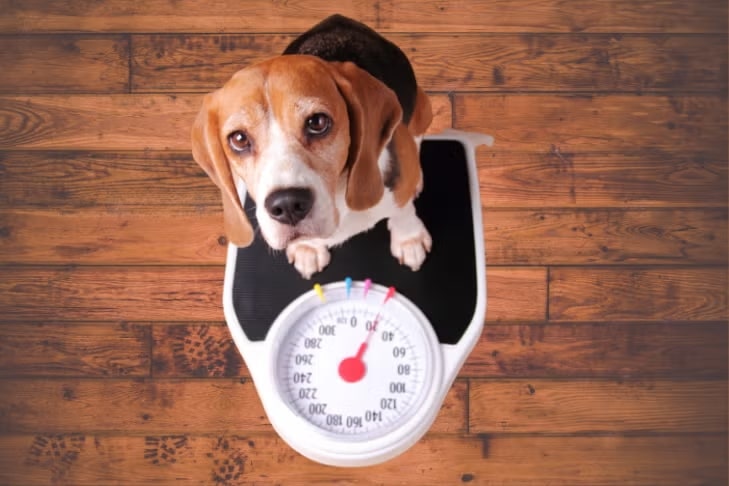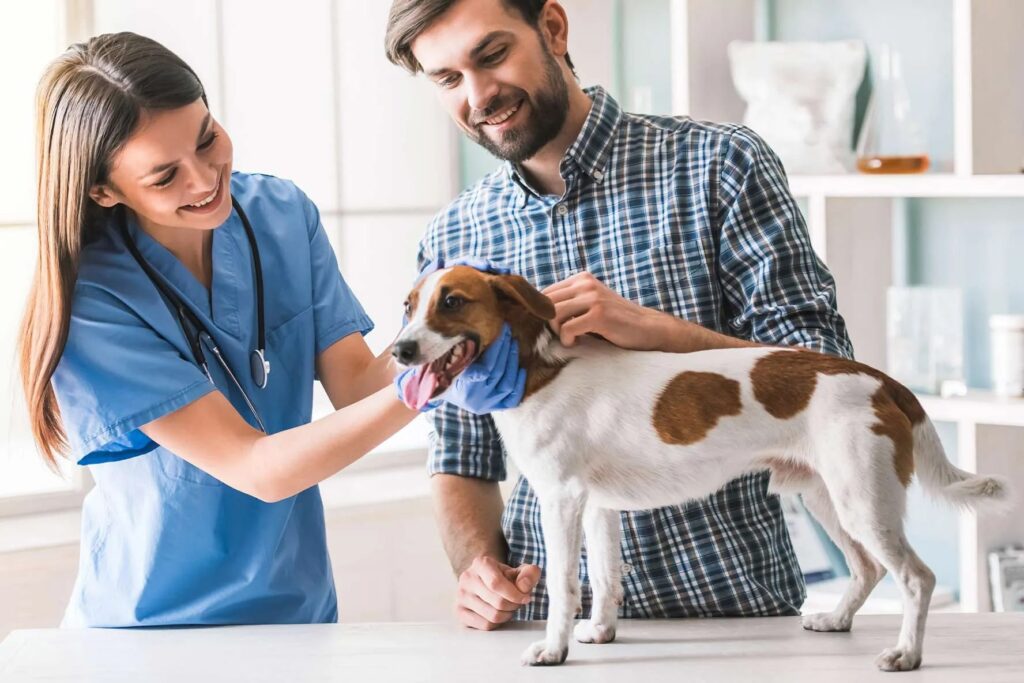(Featuring Charlie, the always-hungry Beagle who suddenly lost his appetite… and my mind along with it.)
The Day Charlie Turned Down Bacon
There are a few things in life I thought I could always count on. The sun rises in the east, my neighbor mows his lawn at the most inconvenient hours, and Charlie, my Beagle, never says no to food.
But one morning, something bizarre happened. I fried up some bacon (because I, too, have priorities in life), and Charlie—who normally teleports into the kitchen at the sound of a fridge opening—didn’t budge. Not even when I waved a crispy, golden piece of bacon under his nose.
I called his name. Nothing. I clapped my hands. Still nothing.
Panic mode: activated.
Charlie, the living vacuum, refusing food? This wasn’t just “off”—this was DEFCON level 1 of dog parenting.
And if you’ve ever had a moment where you looked at your dog and thought, Something’s not right, then you know exactly how that feels.
So, how do you tell when your dog isn’t feeling well? Let’s break it down—before your pup gives you the silent treatment over bacon, too.

1. When Your Dog Acts… Not Like Your Dog
Dogs are creatures of habit. If your normally zoomie-powered pup suddenly moves in slow motion, or your usually couch-potato dog is suddenly pacing like they just drank an espresso, pay attention.
Behavioral Red Flags:
✅ Excessive lethargy – If your dog, who normally rockets out the door for walks, barely lifts their head, something’s up.
✅ Irritability or aggression – A normally chill dog that suddenly growls or snaps might be in pain.
✅ Hiding or avoiding interaction – If they’re choosing solitude over belly rubs, that’s a big hint.
✅ Restlessness or anxiety – Pacing, whining, or refusing to settle can signal discomfort.
🔹 Charlie’s Story:
Charlie wasn’t just turning down bacon—he was avoiding me completely. No tail wagging. No begging. He just curled up in his bed and sighed dramatically, like he was the lead in a sad dog movie.

2. If Your Dog Refuses Their Favorite Food, Call the Vet. Seriously.
A missed meal isn’t always a big deal (maybe they’re just not hungry), but if your dog refuses their absolute favorite food, consider it a doggy emergency.
Appetite-Related Red Flags:
🚨 Loss of appetite for more than a day – Even the most dramatic picky eaters don’t starve themselves intentionally.
🚨 Sudden increase in thirst – Drinking excessively can be a sign of diabetes or kidney disease.
🚨 Vomiting or drooling excessively – Could be nausea, poisoning, or digestive issues.
🔹 Charlie’s Story:
I tried everything—cheese, peanut butter, his sacred squeaky-toy-in-a-hot-dog trick. Nothing worked. He sniffed the food and walked away like some sort of doggy food critic. Charlie, the dog who once ate a sock, was rejecting food. That’s when I grabbed my car keys.

3. Physical Symptoms: The Stuff You Can Actually See
Sometimes, your dog’s body tells the story before their behavior does. A quick once-over check can reveal some serious clues.
Visible Signs of Illness:
⚠️ Limping or stiffness – Could be arthritis, an injury, or muscle strain.
⚠️ Swollen belly or bloating – Could mean bloat, which is a life-threatening emergency.
⚠️ Coughing or wheezing – Not normal unless your dog is auditioning for a dramatic soap opera.
⚠️ Excessive scratching or hair loss – Allergies? Parasites? Time for a vet trip.
🔹 Charlie’s Story:
I checked his gums—they looked pale. Normally, his gums were a nice healthy pink, but they looked almost white. Pale gums can indicate anemia or circulation issues, and that was enough for me. Off to the vet we went.

4. The Bathroom Clues (Yep, We Gotta Talk About This)
A dog’s bathroom habits are basically a direct report on their health. The problem? Dogs cannot send emails, so this is the only “report” you’re getting.
Bathroom Red Flags:
🚽 Diarrhea or constipation – If it lasts more than a day, something’s up.
🚽 Blood in urine or stool – Never normal. Call your vet.
🚽 Straining to pee or poop – Could be a UTI or digestive blockage.
🔹 Charlie’s Story:
Charlie had diarrhea twice in one morning. Not to be gross, but when you own a dog, you become weirdly invested in their poop consistency. (It’s fine. We all do it.)

5. When to Drop Everything and Go to the Vet
Some symptoms should not wait. If your dog has any of these, go to the vet immediately.
🚨 Refuses food and water for more than 24 hours
🚨 Sudden collapse or weakness
🚨 Uncontrollable vomiting or diarrhea
🚨 Bloated stomach that feels hard
🚨 Difficulty breathing or blue gums
🔹 Charlie’s Diagnosis:
At the vet, tests showed Charlie had gastroenteritis—basically a very upset stomach from who knows what he ate before I noticed. It wasn’t life-threatening, but it required fluids, medication, and a bland diet for a few days.
Did I panic? Yes.
Did Charlie make a miraculous recovery after two days of chicken and rice? Also yes.

6. How to Keep Your Dog Healthy (So This Never Happens Again)
If you want to avoid the horror of your dog turning down bacon, here’s what to do:
✔️ Regular Vet Visits – Catch issues before they become serious.
✔️ Quality Diet – High-quality food = better health.
✔️ Monitor Water Intake – Keep an eye on sudden changes in drinking habits.
✔️ Exercise Regularly – Keeps them fit and mentally stimulated.
✔️ Check Their Gums Weekly – Weird? Yes. Useful? Absolutely.

Final Thoughts: Your Dog Relies on You
Charlie couldn’t tell me he was sick, but his body and behavior spoke loudly. When you know your dog well, you can sense when something isn’t right.
So, if your dog ever refuses bacon (or whatever their absolute must-have food is), don’t ignore it. Pay attention. Check their behavior, look for physical symptoms, and trust your gut.👉 Has your dog ever had a “something’s wrong” moment? How did you know? Share your story in the comments below!

